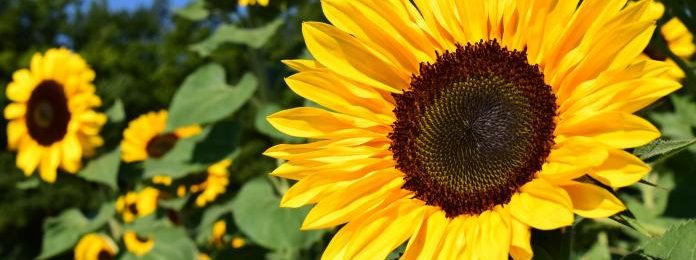Whether for climate change, animal welfare, or health reasons – more and more people decide to cut meat products off their diet, and many even choose to go vegan.
A vegan diet is defined as a diet that “excludes all forms of animal exploitation,” meaning it doesn’t involve meat or any other products derived from animals, such as anything that contains milk or eggs.
The number of vegans around the world is constantly increasing. However, there are certain regional differences when it comes to veganism. For example, it’s considered to be far more popular in Germany than in a lot of places in the United States.
“People in Germany are more open to the subject, more informed, and more advanced than here,” says Lisann Evert, a German student here at Morningside University in Sioux City, Iowa. “The meat consumption is definitely higher, especially more thoughtless. It’s not like people don’t care at all. They do care if they drive past an animal transporter, but when the food is on the plate, they don’t think about the animals at all.”
Evert came to the US from Germany this fall. She has been following a vegan diet for about one and a half years. “Germany offers a lot of plant-based options. Supermarkets are full of vegan products. Pudding, yogurt, milk, cheese, sausage, schnitzel, gyros – there are substitute products for everything,” Evert describes.
Germany is rated the fifth-best country for vegans in 2021 by Chef’s Pencil. Even though Germany is well-known for its schnitzels and sausages, it also leads in the production of meat substitutes and plant-based food. With close to 10% of the population considering themselves vegetarian and about 1.6% vegans, the country has the highest rates in Europe – and the numbers increase rapidly.
Conny Wagner lives in Berlin, the city that was named the vegan capital of the world in 2017. She turned vegan in March 2019. Yet, it’s not like she wasn’t confronted with prejudices or misconceptions at all.
“It was obviously an extreme change for my family and friends. I constantly heard questions like “what can you even eat now?”, “where do you get your protein?”, and “isn’t it unhealthy to not eat fish or eggs?” Thank God I was able to clear up these things,” Wagner says.
In general, though, she believes it’s easy to live vegan in Berlin. Many restaurants offer vegan meals. The selection of vegan products is constantly increasing, and you can buy them in almost every store.
At Morningside, on the other hand, things look a bit different. For Lisann Evert, keeping her diet balanced and diverse at the same time is harder now. Even though she acknowledges that big markets here have some vegan products, she complains about the lack of options on campus.
On good days, she can eat a healthy vegan diet in the cafeteria, knowing her body is getting what it needs. On other days, not so much. “Sometimes, I have to cope with eating the exact same three days in a row,” she notes.
Jil Hellerforth, another German student, agrees. “It’s hard in the cafeteria. Often you can only eat a salad with oil. It’s not enough to have some plant-based milk. You can’t keep a diverse, healthy diet,” she argues. “Cheese, milk, or eggs – they put some kind of animal product in everything. They could easily make more vegan food, but they just don’t think about it,” she adds.
Hellerforth is in her second year at Morningside. The past year, she has tried talking to the university and convince them to offer more vegan meals, but since nothing has really changed, she stopped trying. Now, she mostly buys food on her own and prepares it in her residence hall or in her friends’ houses off-campus.
Besides that, Hellerforth states that the mindset of students here is very different compared to back home. According to her, there are prejudices in both places, but there are more people that are not informed about veganism or don’t understand it at all around here. “They say: “well, if you don’t eat meat, I’ll just eat twice as much,” and stuff like that.”
On the contrary, there was a huge demand for more vegan food by Berlin’s student population, of which 13.5% are keeping a vegan diet. As a result, Berlin university canteens will go almost meat-free in the future with a 68% vegan menu and only one meat option four days a week.
Clearly, even though veganism is on the rise all over the planet, being a vegan is definitely easier in some places than it is in others – and Morningside obviously has a long way to go.
